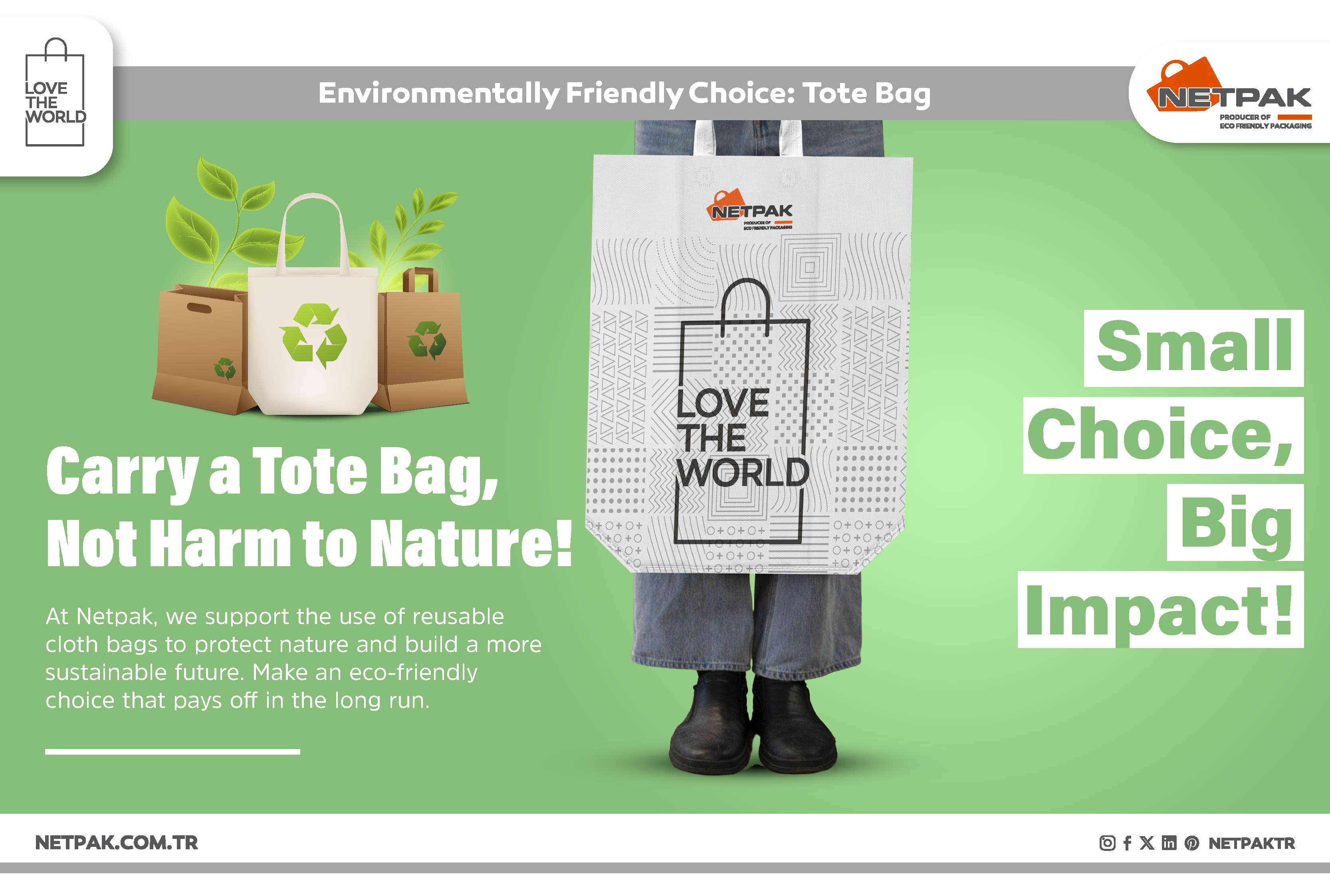
Sustainability Efforts at Netpak Ambalaj
Corporate Vision
At Netpak Ambalaj, we embrace sustainability not just as a production policy, but as a core value at the heart of our corporate vision. Our environmentally conscious production approach contributes to the protection of nature while also enabling us to fulfill our social responsibilities. The recyclable and reusable bag solutions we have developed to reduce the environmental impact of single-use plastic bags are one of the most concrete steps we have taken towards a sustainable future. Through these products, we contribute to reducing plastic use and offer consumers eco-friendly alternatives.
The foundation of our corporate vision consists of the efficient use of resources, waste reduction, energy saving, promotion of recycling, and increasing environmental awareness. In this direction, we adopt a sustainability-focused approach not only in our production processes but also in our supply chain and social responsibility projects.
1. Waste Reduction Efforts in Production
As Netpak Ambalaj, we have set it as one of our primary goals to use resources most efficiently on our production line, to minimize waste, and thus to reduce the environmental impact to a minimum. In this direction, we conduct comprehensive analyses on our printing, lamination, and extruder lines. Optimizing the amounts of ink and film used on the printing line reduces both chemical waste and the additional energy consumption that arises during production. Keeping glue consumption under control on the lamination line and ensuring compatibility with fabric quality prevents waste caused by adhesion issues. On the extruder line, regular measurements and audits regarding the use of granular raw materials are carried out to prevent material losses and achieve improvements in energy use.
Additionally, we have established a special control system to track start-up and end-of-reel waste. This way, the waste rate that occurs at the beginning and end of each production batch is monitored and reported regularly. Based on this data, machine settings are optimized to prevent unnecessary raw material consumption.
In addition, new measurement methods are being implemented to reduce discrepancies originating from the boiler. The balance between raw materials and products before and after production is constantly checked to minimize the amount lost during the production process. Thanks to this systematic approach, both costs are reduced, and a lesser burden is placed on nature.
All these efforts not only increase production efficiency but also play a significant role in our company's fulfillment of its environmental responsibilities.
2. Supplier Collaborations
We believe that for a sustainable production chain, not only internal processes but also supplier relationships must be strong and environmentally conscious. In this context, we are in constant communication with our suppliers and carry out joint studies to improve material quality.
For example, by tightening the quality controls of materials from our fabric suppliers, production problems caused by linty or faulty raw materials are prevented. This both prevents decreases in production speed and reduces the amount of wasted raw material. As we have observed that low-quality raw materials can cause high waste in production, we have redefined quality standards together with our suppliers and established regular feedback mechanisms.
Furthermore, in our discussions with suppliers, we focus on material options that will reduce environmental impact. We prioritize the use of recyclable and eco-friendly raw materials that can be processed with lower energy. In this way, we ensure that sustainability steps are taken not only in Netpak's production but at every stage of the supply chain.
The measures taken for quality issues are not just short-term solutions; they also contribute to the promotion of environmentally conscious production throughout the sector in the long term. Because at Netpak, we believe that the concept of 'sustainability' is not just an internal company value, but a culture that must be developed together with all our business partners.
09.09.2025